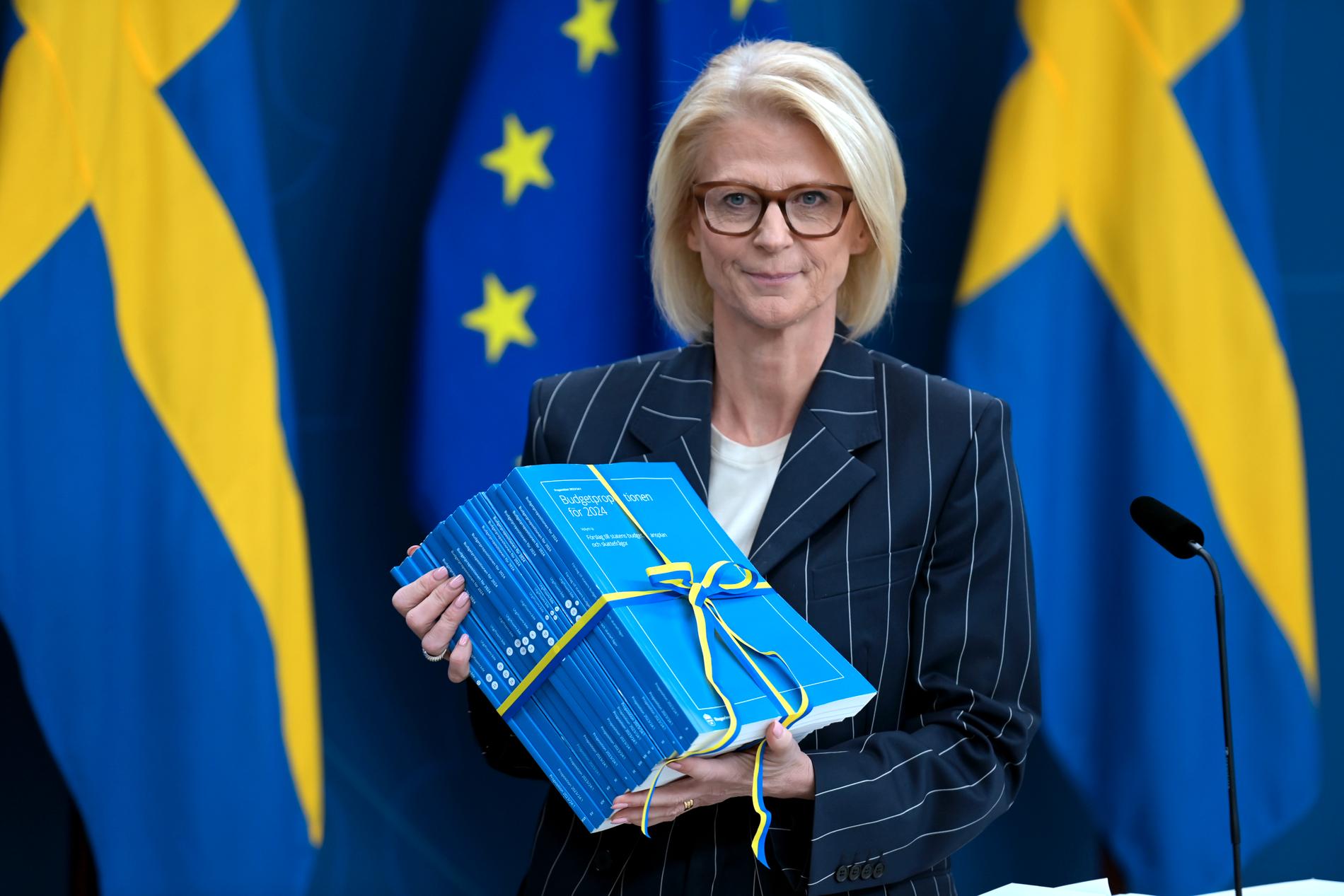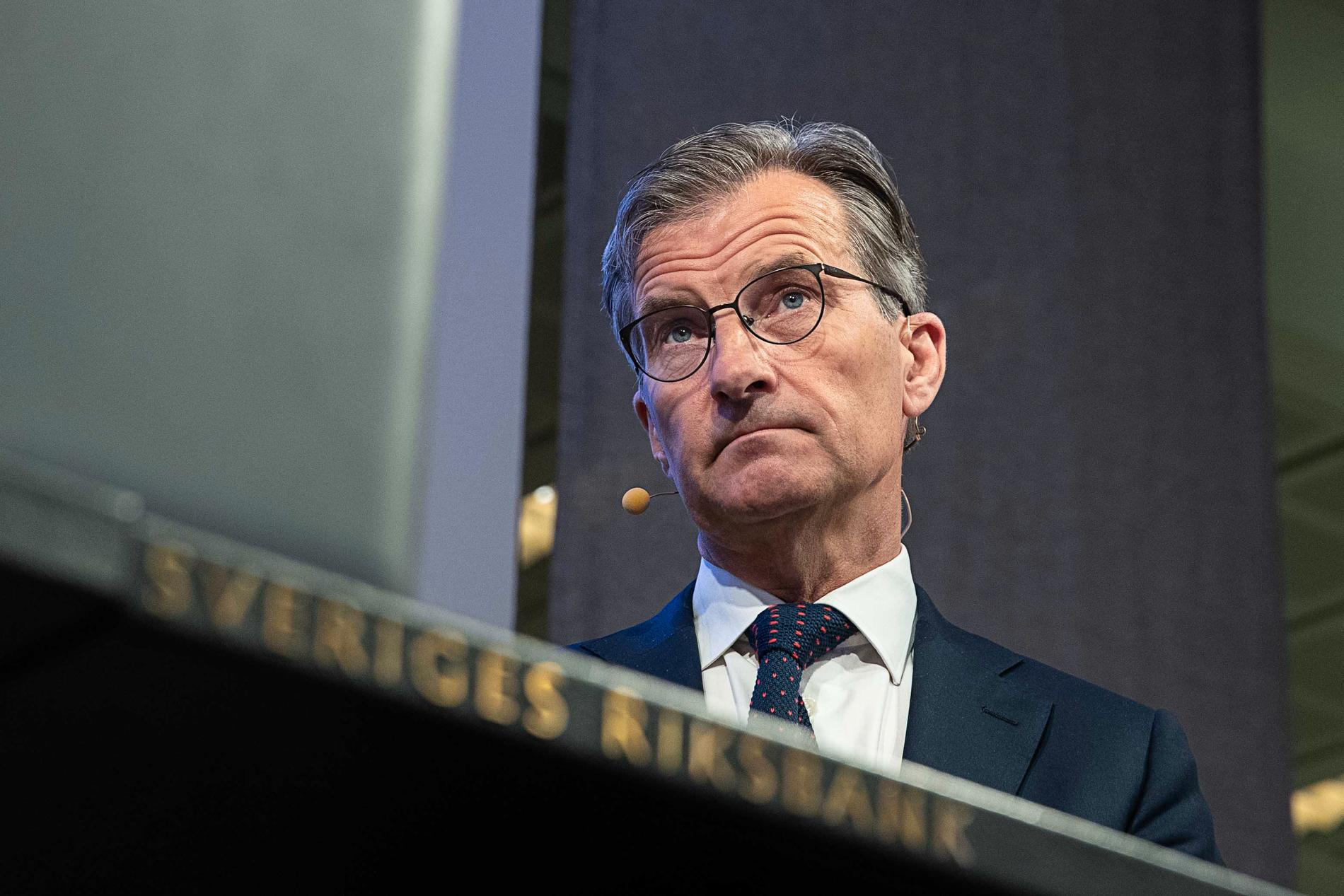
The Riksbank
With friends like that, the Swedish economy needs no enemies
Andreas Cervenka
Reporter
This is a commenting text. Analysis and positions are the writer's.
Updated 22:26 | Published 22:22
Columnists
The Riksbank raises the interest rate again and signals that there will be more. Right or wrong?
It's time to start asking more important questions.
Like this one for example: why have those who have been entrusted with running the Swedish economy failed so monumentally?
Paying 75 kroner for an ice cream stick does something to a person.
The fall of the krone in 2023 has not only shaken Swedish holiday budgets, but the entire nation's self-image.
For a long time it was said that foreign investors who dumped the krona simply did not understand how good Sweden is.
It is as intelligent as reacting to a fever by getting angry at the thermometer.
Now there has been a sort of awakening, where the country's economic health is being debated with an intensity not seen since the 90s crisis.
Abroad, the diagnosis was made a long time ago.
Just search for "Sweden" on any international financial site.
"Sweden takes cover as the clouds in the real estate sky darken," wrote Reuters in an article last week.
When other countries look at Sweden, they see a country where the problems pile up; property crisis, increased inequality, crime and political turmoil. At the same time as they can state that the Swedish state is only getting richer and richer.
Elisabeth Svantesson on Wednesday. Photo: Jerker Ivarsson
When Elisabeth Svantesson presented the budget on Wednesday, it appeared that public sector debt is expected to drop to below 29 percent of GDP in 2026. At the same time, the state's net assets will rise by almost 500 billion in the next few years to just under 2,000 billion. Her finance minister colleagues in Europe would sacrifice a hand for such numbers.
Between 2022 and 2023, government spending will have increased by 1.6 percent, in a year when inflation is expected to land at 8.7 percent. It's a bit of a joke.
Unless all of Sweden's regions and municipalities have been hit by mythomania at the same time, the situation does not seem to be completely tip top in terms of welfare. Schools and hospitals are forced to make savings.
Appropriations for the judiciary must increase by almost 30 billion until 2026, while the universities and municipalities will receive 20 billion more. Together.
How can we afford to lock up young people but not to educate them?
But to only criticize the current government is to make it too easy for oneself.
Excessive austerity is a disease that has characterized a long series of governments regardless of party color.
Of course, spending tax money is not an end in itself. But allowing spending to steadily decrease presupposes that there are no major social problems to tackle.
We're not quite there.
It is not big misinvestments that have created the problems in the Swedish economy. What stands out the most is rather the absence of decisions.
A selection: the housing market has not been fixed, interest deductions have not been phased out, the tax system has not been reformed, the infrastructure has not been updated.
Actions that made us significantly less vulnerable today.
Why was nothing done? There are no good answers to that.
"There was quite a lot in between", as former Finance Minister Mikael Damberg has put it.
It can be said that there is shared custody of Sweden's economy, where the sitting finance minister is one guardian and the head of the Swedish Riksbank the other.
Now if one of the parents neglected their most important task, how has it gone for the partner?
When Erik Thedéen announced today's interest rate increase, it means another blow to Swedish households whose total interest expenses between thumb and forefinger will have risen by 175 billion or 230 percent in a couple of years.
Riksbank Governor Erik Thedéen. Photo: Malin Lövkvist
Many readers may have questions about the Riksbank right now.
Here is an attempt to answer some.
1. Why do interest rate increases hit Sweden so hard?
Because the Riksbank carried out a historic experiment with zero and minus interest rates between 2014 and 2022, which made it unnaturally cheap to borrow, house prices rose sharply and we incurred large debts.
2. Why is inflation still so high in Sweden?
One explanation is that the Riksbank was very late in starting to raise the interest rate when inflation took off. Another is the weak krone, which makes it more expensive to import.
3. Why is the crown so weak?
The Riksbank's low interest rates have meant that significantly more money has been printed in Sweden than in other countries and this has lowered the value of the krona. In addition, the Riksbank's actions have inflated a bubble on the real estate market which has now burst, scaring foreign investors. It is also difficult to invest in kronor because the Riksbank bought up a fairly large share of Swedish government bonds.
4. Why did house prices rise so much during the pandemic?
One reason was that the Riksbank pushed down the mortgage interest rate by subsidizing housing bonds for SEK 400 billion.
5. I have read that the Riksbank made a loss of 80 billion last year. Who will pay for it?
You. The money will be taken from the budget.
6. Has the Riksbank admitted that it did something wrong?
No.
Anyone spot a pattern?
The Riksbank is now trying to save the authority's face after a decade of mistakes by deliberately lowering the economy. The Swedish people unfortunately pay the price.
If politicians and Riksbank bureaucrats had set themselves the goal of putting Sweden in a bad economic situation fifteen years ago, it is difficult to see how they could have done a better job.
With such friends, the Swedish economy needs no enemies.
Sweden managed fifteen lost years, but only just barely. We're not fixing another fifteen years.


Inga kommentarer:
Skicka en kommentar